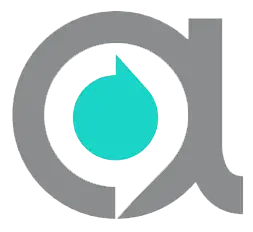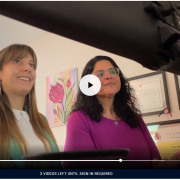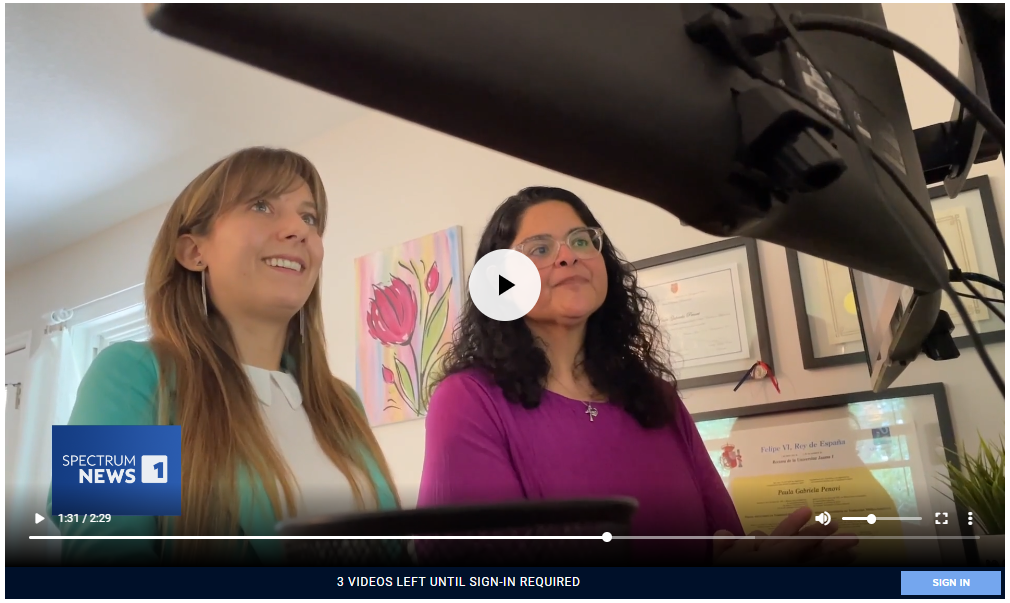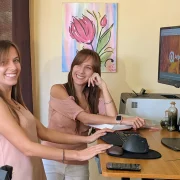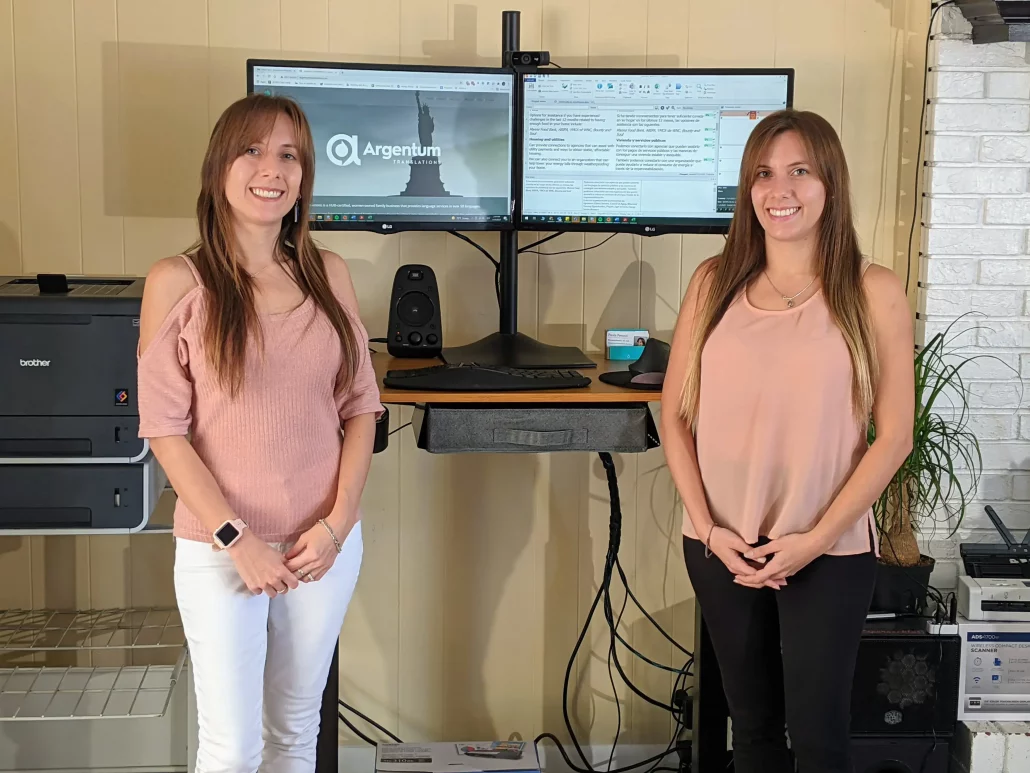Clear Communication for Everyone: Plain Language in Government Communications and Beyond
Written by Paula Penovi, CT, CMI, M. A.
At Argentum Translations, we understand the importance of clear and concise communication, especially when it comes to government documents and services. That’s why we champion the use of plain language in our translations.
What is Plain Language?
Plain language is simply using clear, understandable language that your audience can easily grasp. It means avoiding complex jargon, legalistic terms, and long, convoluted sentences.
Why is Plain Language Important?
The government plays a crucial role in our daily lives, influencing everything from social security benefits to public health initiatives. However, complex legalese and convoluted sentence structures can create a barrier for our communities. Imagine someone with limited English proficiency or a lower reading level attempting to apply for a government program but struggling to understand its complex instructions. Clear instructions written in plain language can guide families through government processes efficiently, ensuring they receive the support they need. Plain language guarantees that everyone, regardless of their background or education level, can access and understand vital information. This fosters transparency, builds trust in government institutions, and empowers individuals to navigate the system effectively. Besides, clear communication minimizes misunderstandings and misinterpretations. This leads to fewer inquiries directed towards government agencies, freeing up resources and streamlining processes.
Federal Plain Language Guidelines: A Roadmap to Clarity
The Plain Writing Act of 2010 established a set of guidelines to ensure clear communication from federal agencies. Here’s a simplified breakdown of the key points:
- Audience awareness: Government documents are tailored to the intended audience, using language that aligns with their understanding.
- Logical organization: Information is presented in a well-structured manner, making it easy to follow and navigate.
- Simple and direct language: Technical jargon and overly complex vocabulary are replaced with clear and everyday terms.
- Concise sentences: Sentences are kept short and to the point, avoiding unnecessary elaboration.
- Active voice: The focus is placed on who performs the action, promoting clarity and directness.
- Real-world examples: Abstract concepts are explained through relatable scenarios and illustrations, enhancing understanding.
- Reader-friendly design: Headings, bolding, and shorter paragraphs are utilized to improve readability and information flow.
Basically, the key to clear writing lies in using straightforward language everyone understands. This means prioritizing the active voice and the use of simple verbs and terminology. Writers and translators should avoid turning verbs into complicated nouns (such as “utilization” instead of “use”); they should focus on short, everyday words instead of jargon or overly technical terms; and keep sentences brief and to the point. A few other great strategies are keeping the subject, verb, and object close together for clarity, avoiding double negatives and complex phrasing that might cause confusion, and making sure each paragraph focuses on a single main idea. Clear examples and illustrations are used to make things relatable to the audience and the information is presented in tables or lists to improve understanding. Finally, bold and italics can be used to emphasize important points.
Translating for the US Hispanic Population: Why Low Register Matters
Translating government documents into Spanish requires a “low register” approach. This means using everyday language commonly understood by the target audience, avoiding overly academic terms or formal Spanish rarely used in spoken conversation. Documents are usually kept at a 4th to 6th grade reading level whenever possible. This ensures a wider range of the population can understand the information. However, highly technical documents, like medical explanations, may require some specialized vocabulary due to the nature of the content.
Here are some specific examples of principles translators can focus on to ensure clear, concise, and accessible communication, even in technical domains:
- Verb choice:
A clear verb ensures the core meaning of the sentence is readily grasped and an accurate verb translation transmits the intended action without ambiguity. For instance, instead of resorting to high-register and complex verbs such as “realizar” (perform), “elaborar” (develop), “llevar a cabo” (carry out), “efectuar” (effect), it is important that we focus on the most common and versatile verbs in Spanish, such as “hacer” (do). This is a fundamental verb understood by a wider audience that conveys a basic action effectively.
- Focus on Clarity:
Use simple and brief terms and phrases. For instance, avoid creating adjectives from nouns. Instead of using complex adjectives such as “problemas hepáticos” (hepatic problems) and “problemas renales” (renal problems), use “problemas del hígado” (liver problems) or “problemas de los riñones” (kidney problems) to guarantee understanding. These nouns are readily understood by most audiences and even individuals with a lower vocabulary level could grasp the meaning without needing to decipher these complex adjectives. - Sentence Structure:
Translators should favor the “subject + verb + complement” (S-V-C) structure whenever possible. This structure aligns with the natural flow of human thought. We inherently grasp who or what (subject) is performing an action (verb) and what the action affects (complement). When translating from a language with a different sentence structure, translators might need to rearrange the sentence elements to adhere to the S-V-C order in the target language. In questions, however, they may rephrase the sentence to avoid misinterpretations. For example: “¿Está enferma su madre?” (Is your mother sick?) could be used instead of “¿Su madre está enferma?” (Your mother is sick?) since the second phrasing could be misinterpreted as a statement.
While striving for clear and concise language is crucial, it is paramount that the translation remains faithful to the original source material. Accuracy is essential, ensuring the translated message accurately reflects the intended meaning. This does not negate the importance of localization. We can adapt the translation wherever possible regarding spelling, grammar, and terminology specific to the US Spanish-speaking audience and other non-English-speaking audiences in the country. This fosters better understanding and resonates with their cultural context. Furthermore, considering the nuances of language used within this community is vital.
By adhering to these guidelines, Argentum Translations ensures that translated documents in Spanish and other languages are clear, concise, and accessible to these communities in our county and beyond. This promotes inclusivity, empowers individuals, and fosters a more transparent government for all. Here is what sets us apart as a HUB-certified, women-owned translation agency that only relies on certified translators:
- Accuracy first: Our unwavering commitment to fidelity ensures the translated message meticulously reflects the source material. This guarantees the integrity and legal weight of the information conveyed.
- Plain language expertise: We transform complex legalese and jargon into clear, concise language readily understood by the target audience. This empowers individuals to navigate government processes with ease and confidence.
- Cultural nuances: Our team possesses a deep understanding of the cultural context and linguistic variations in the languages we work with. This meticulous attention ensures the translated information resonates effectively with our communities.
- Localization tailored for the US Spanish variant: We go beyond basic translation, adapting spelling, grammar, and terminology to align with the specificities of the US Hispanic audience. This fosters a sense of familiarity and strengthens the message’s impact.
* Note: This is a simplified explanation of the guidelines. For a comprehensive understanding, please refer to official resources: https://www.plainlanguage.gov/.
